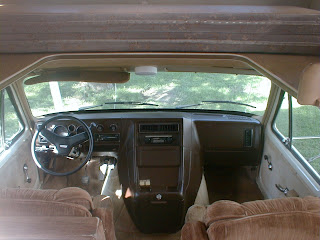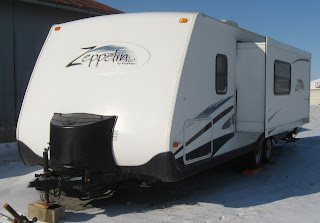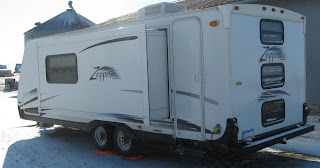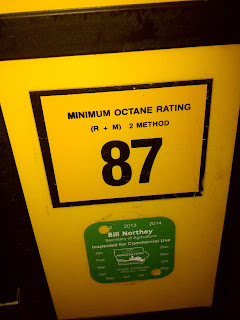What Type of Recreational Vehicle (RV) is Best?
Recreational Vehicles (RVs) are mobile living spaces that include beds, a bathroom, a kitchen, and other amenities of home. These vehicles can be used for camping or even for long-term residences. They can also be used as handy guest accommodations when you need extra bedrooms at your house. If you're traveling to visit friends or family, you can bring your own bedroom if you want.The two main types of recreational vehicles are motorhomes and travel trailers. Motorhomes include a built-in vehicle with an engine, while travel trailers are towed by a pick-up truck. The pros and cons of both types of recreational vehicles are presented.
Motorhomes
The most common motorhome types are Class C and Class A. Class C motorhomes are based on a van style body, while Class A motorhomes are based on a bus style body. Class A motorhomes look like a tour bus from the outside. One nice feature of Class C motorhomes is the over cab bed- the space above the driving compartment converts to a large bed with a nice view. |
| Class C Motorhome- 1986 Winnebago Minnie Winnie Image Source: Dr. Penny Pincher |
 |
| Cab of a Class C Motorhome with bed over cab Image Source: Dr. Penny Pincher |
Pros of Motorhomes vs Travel Trailers
- You do not need to own a pickup truck which can cost $20K or more
- You do not need to hitch/unhitch your recreational vehicle
- Motorhomes are easier to drive and park than towing a travel trailer
Cons of Motorhomes vs Travel Trailers
- After you reach your camping destination, you still need to drive the large vehicle (can't unhitch the house part)
- Maintenance- you'll need to maintain both a vehicle and a house
- Motorhomes generally cost more to purchase than a travel trailer of similar age and size
Travel Trailers
Travel trailers are recreational vehicles that are designed to be towed with a pickup truck. The two main types are conventional and fifth-wheel. Conventional trailers hitch to a pickup truck below the bumper of the truck, while fifth-wheel trailers hitch to the truck bed using an adapter. Fifth-wheel trailers have a smaller turning radius than conventional trailers. However you need to install a fifth-wheel adapter in your truck bed, and you'll need to remove the hitch adapter if you want to use your truck bed for other jobs. Conventional trailers often use "sway bars" to help stabilize the trailer and keep it in line behind the tow vehicle.Like motorhomes, travel trailers have slideouts available to increase floor space when the trailer is parked.
 |
| Travel Trailer Hitch on 26 foot Zeppelin by Keystone Image Source: Dr. Penny Pincher |
 |
| Slideout on travel trailer- Zeppelin by Keystone Image Source: Dr. Penny Pincher |
 |
| Ball hitch for conventional travel on pickup truck Image Source: Dr. Penny Pincher |
 |
| Conventional trailer has tongue that hitches to ball hitch on a pickup truck Image Source: Dr. Penny Pincher |
 |
| 5th wheel hitch on 5th wheel travel trailer hitches to mechanism installed in bed of pickup truck Image Source: Dr. Penny Pincher |
 |
| 5th wheel trailer hitch receiver installs into the bed of a pickup truck Image Source: Dr. Penny Pincher |
Pros of Travel Trailers vs Motorhomes
- You can unhitch your travel trailer when you arrive at your camping destination and drive your truck
- Low maintenance- just torque the wheel nuts, grease, and winterize
- Travel Trailer purchase price is usually less than a motorhome for similar age and size
Cons of Travel Trailers vs Motorhomes
- You need to own a pickup truck to tow the trailer which can cost $20K or more
- You will need to hitch/unhitch your recreational vehicle
- Backing up a travel trailer is more difficult than backing up a motorhome
Truck Campers
Another option to consider is a truck camper. This is a camper that slides into the bed of a pickup truck. The amount of space inside a truck camper is limited since the camper is only about 14 feet long. However this may be a convenient option for 1 or 2 people to use when traveling. Truck campers can have bathrooms, showers, and kitchen facilities similar to travel trailers and motorhomes, but packed into a much smaller space.With a truck camper, you get the advantages of a travel trailer over a motorhome. You have a pickup truck to drive rather than driving a motorhome when you reach your destination. Also, you do not need to deal with towing at all- the truck camper does not change the handling of the truck, and backing up with a truck camper is easy- backing up with a travel trailer takes some practice. Some truck campers, like the shown below, have a bed over the cab of the pickup truck similar to a Class C motorhome.
 |
| Pickup truck with truck camper, side view Image source: Dr. Penny Pincher |
 |
| Pickup truck with truck camper, view from back Image source: Dr. Penny Pincher |
Small RVs
Class B motorhomes are van campers that are typically the size of a full-size van in length and may have a higher roof. Class B's are similar in size to a truck camper. The smaller size of a van camper means that it is easier to drive and park at your destination.Pop-up campers are towed behind a vehicle in a compact form, and then are assembled into full size at the campsite. Assembly involves folding out tent sections from the main part of the camper. Pop-up campers are lightweight and may be towed by a car or truck.
How to Decide?
- If you already have a pickup truck, a travel trailer may be a better option than a motorhome
- If you don't already have a pickup truck, a motorhome would require only a single purchase vs. purchasing both a travel trailer and a pickup truck
- Get a book on motorhome and travel trailer repair and maintenance- this will let you know what to expect for each of these options so you can make the best choice
- Consider smaller RV options such as truck campers, Class B motorhomes, and pop-up campers. If you don't need a lot of space, these may be less expensive and easier to drive.
- Look for deals on eBay:
Recommended
reading:













